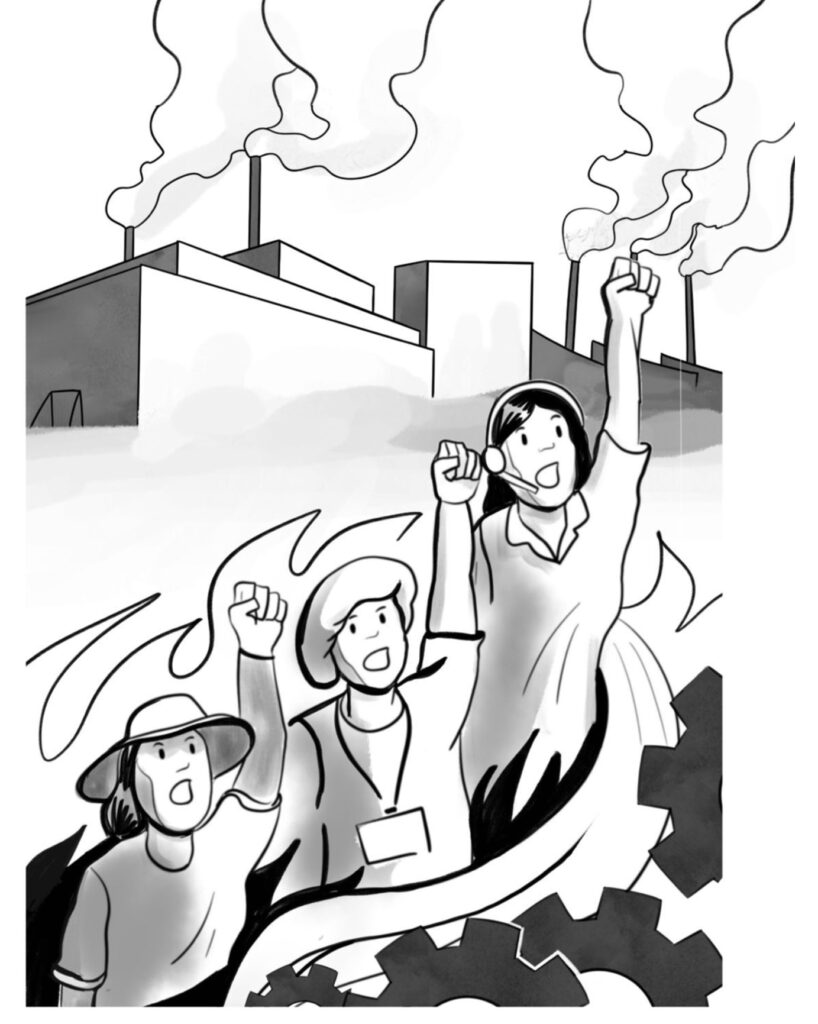Filipino women have touched the worst impact of neoliberal policies imposed by US imperialism and puppet states for the past four decades. Due to the policies of liberalization, deregulation and privatization, they are further pushed into the society, where they are forced to adapt to informal, unsafe and enslaved wages.
Most of the women are contained in the most exploited and oppressive sectors of society - workers, peasants and indigenous people, poor in the countryside and urban. In the last decade, more than half of them, ages 15 and older, have not been counted in the labor force because of the nature of the work they do. Among them are millions of housewives who work on farm jobs and receive "sideline" jobs while carrying heavy homework and caring for children. In 2022, women counting to the labor force, unemployed and lacking or unemployed.
Seven out of every ten women considered work are in the service sector. Their jobs here are “low-skilled” or need low skills and irregularity. This is despite the relatively highly reached level of women's education.
In the manufacturing sector, 90% of women were “irregular” and very small (2.7%) were contained in the unions. Many women are found in the factories of large foreign capitalists within the export processing zones, where they are part of the international assembly line (the imperialist global value chain calls). Foreigners are said to be "prefers" to women because of their self-esteem, skill in detailing work such as the assembly of semiconductors or sewing, and overtime sewing. In fact, these qualities are not natural to women, but due to the desperation of the constant employment crisis, which is exploited by capitalists and labor agencies.
Furthermore, they are generally cheaper to pay, compared to men. In the clothing industry, for example, their wage level is less than 17% -25%.
Literal coins are being paid by women's manufacturing companies in poor communities that they are contracting to wholesale to perform certain parts of the assembly work. They are what the International Labor Organization calls industrial workers "home-based." Some of their jobs include small sewing, embroidery, small household equipment, food manufacturing, handicrafts and tourist decorations and more.
In freelance jobs, the wages of the digital work, compared to men are less than 18.4%. This is because of the "traditional perspective" that women are more appropriate for the type of "less complicated" jobs such as encoding, compared to "more complex" and with higher extra-essential jobs such as digital design allegedly ' Y “more appropriate” to men.
In agriculture, the wages of women's farm women receive less than 8% -15%, compared to men's wages. ) ”They play in production.
In order for them to survive their families, many women leave their children, leaving the country to work as helpers, nanny and other jobs that take them to great exploitation, oppression, violence, and in some cases, their death. In 2022, 1.10 million women (60.2%) were migrated, compared to 726,000 men (39.8%). Nonetheless, the annual abereyds were renewed by women's migrant workers (₱ 61,000) compared to men (₱ 126,000).
In the countryside, farmers women have sold the widespread landlessness. Very small number (6.3%) has a solo or land-owned amount of land. They carry the problem of high prices of farm inputs, low yield prices and losses during disasters. Big majority is in debt to the usurers and microfinance institutions, not only for production, but to the daily needs of their families.

